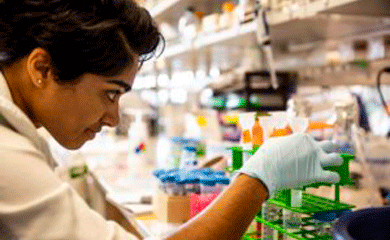
Sinduja Marx has long been interested in developing miniaturized, parallelized and personalized sequencing and diagnostics tools. As a molecular engineering grad student in the labs of physics professor Jens Gundlach, and Institute for Protein Design director David Baker, Marx is designing synthetic biological channels for nanopore DNA sequencing and molecular diagnostics. In this Q&A, Marx talks about her research and advice for prospective grad students.
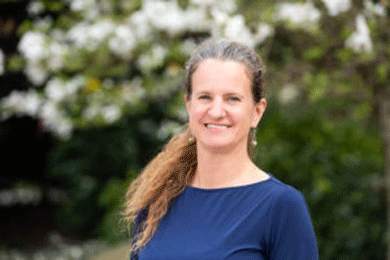
We recently spoke with Ellen Lavoie, Molecular Analysis Facility staff scientist and electron microscopy expert, about how she came to be a TEM expert and what she loves about her work. Read our Q&A with Ellen!
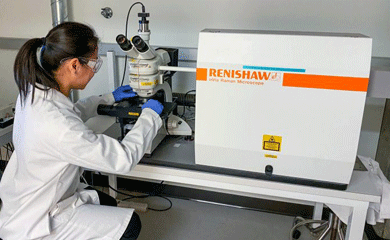
Using advanced instrumentation in the Molecular Analysis Facility, researchers in the lab of MolES faculty member and materials science & engineering professor Christine Luscombe have discovered that Salish Sea oysters may not contain as many microplastic contaminants as previously thought.
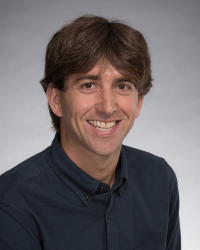
Jason Fontana, a molecular engineering Ph.D. student in the labs of chemical engineering professor James Carothers and chemistry professor Jesse Zalatan, has identified features of bacterial genes that impose strict requirements on CRISPR-Cas transcriptional activation tools. This work defines new strategies to effectively regulate gene expression in bacteria, bringing researchers closer to their goal of using bacteria to produce valuable biosynthetic products. Read this Q&A with Jesse Zalatan featured on the Science in Seattle blog.
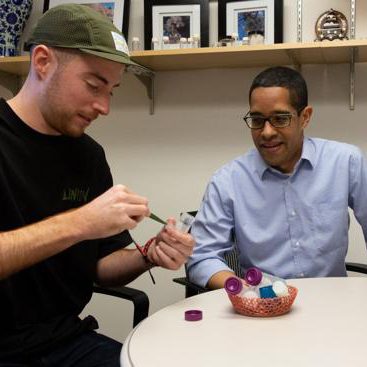
A team was led by Dr. Alshakim Nelson, an assistant professor of chemistry at the UW, and Dr. Hal Alper, a professor of chemical engineering at the University of Texas, developed a new method that combines the bioactivity of microbes and a 3D-printed, synthetic hydrogel "” a water-based gel structure "” to create desired chemical compounds. The products can vary from pharmaceuticals to nutraceuticals, alluding to the vast potential for this new finding.
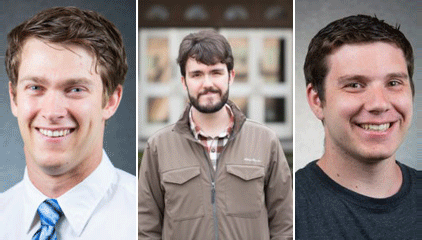
Since launching the molecular engineering Ph.D. program in 2014, it has grown to include over 70 students working across the University of Washington on everything from designing and testing battery materials to designing proteins that can turn genes on or off at will. Congratulations to our latest graduates - Justin Davis, Dion Hubble and Grant Williamson!
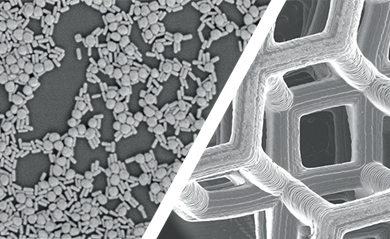
Scott Braswell, Molecular Analysis Facility staff scientist and Scanning Electron Microscopy expert, loves that microscopy draws on many areas of knowledge; knowledge of what you're observing, technical skills in capturing a good image, and your own aesthetic. Read our Q&A with Scott.
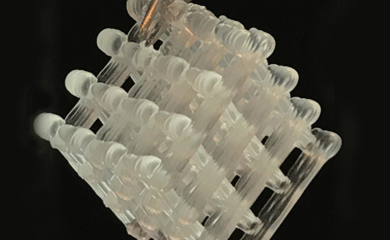
Researchers in the lab of MolES faculty member and professor of chemistry Al Nelson along with collaborators at the University of Texas unveiled a new way to produce medicines and chemicals and preserve them using portable "biofactories" that are embedded in water-based gels known as hydrogels. The approach could help people in remote villages or on military missions, where the absence of pharmacies, doctor's offices or even basic refrigeration makes it hard to access critical medicines and other small-molecule compounds.
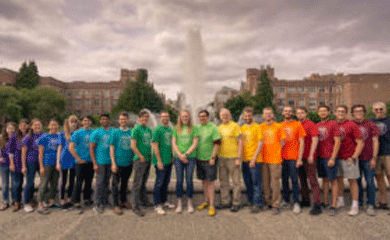
MolE PhD student Ted Cohen shares how molecular engineering has opened new opportunities for collaboration. Cohen is a 4th year molecular engineering Ph.D. student co-advised by Professor of Chemistry Daniel Gamelin and Professors of Materials Science & Engineering Christine Luscombe and Devin Mackenzie.
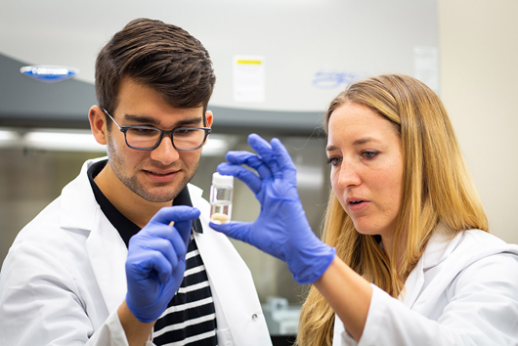
Elizabeth Nance, an assistant professor of chemical engineering at the University of Washington in Seattle and a recent recipient of the Presidential Early Career Award for Scientists and Engineers (PECASE), focuses her research on understanding the barriers in the brain and other cell- and tissue-based barriers in the body to see how nanoparticles interact with them.